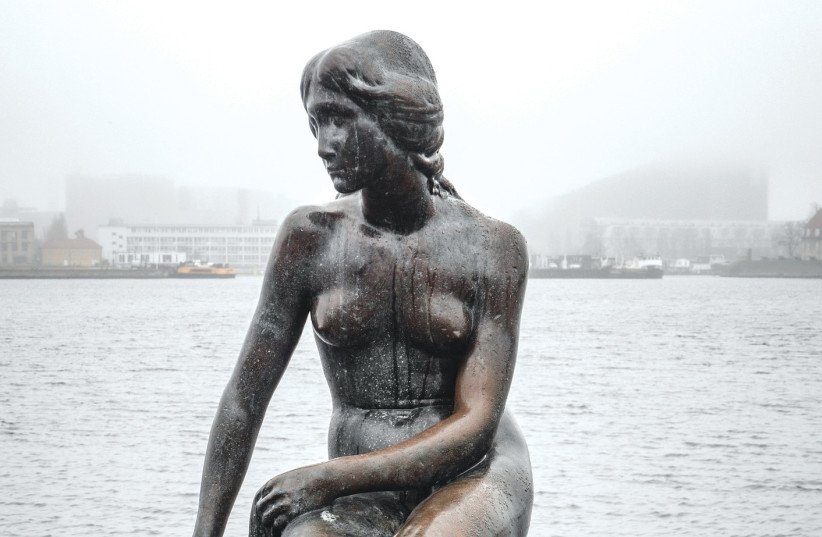Love struck Rusalka (soprano Alla Vasilevitsky) meets a handsome prince (tenor Alexei Dolgov) in the same-titled opera by Czech composer Antonín Dvorák, now offered at the Israeli Opera.
Sadly, she is a mermaid and he is a human. When she attempts to touch him, he thinks she is a wave in a pool. To leave her realm, Rusalka trades with the witch woman Jezibaba (mezzo-soprano Edna Prochnik), exchanging her voice for legs.
Will the prince see how much she loves him when she is mute, and she will gain a human soul, or will he reject this pale, sad, silent woman and condemn her to change again – this time to a murdering bog spirit?
Delighting opera fans for over 100 years
This much beloved opera, with its mythical and folk aspects, has delighted opera fans since its world premiere in 1901. Director Stefano Poda has adapted it in a visually stunning, powerful manner. More conventional adaptations – like the 1977 Czech film by Peter Weigl, or the 2017 Met Opera production directed by Sir Mark Elder – have characters move on stage from forest pool to palace and back as if in a fairy tale; Poda floods the stage and makes it an actual pool.

When Rusalka’s father, the water spirit Vodnik (baritone Ionut Pascu) emerges, he rises from that pool. The element of water is massive. The nymphs lay down and roll around Vodnik, unable to rise since, in this mythic logic, they don’t have feet. Pascus is able to sing beautifully, inhabits the role of the grieving father who laments the loss of his daughter to the human realm, and jumps to the pool without missing a beat. Good opera is hard; to sing submerged in water is an Olympian feat.
Starring in the title role, Vasilevitsky offered a wonderful performance from start to finish. It was a delight to watch her interact with Prochnik in the role of Jezibaba.
Poda’s vision had the witch walk with a collection of iron items attached to her dark dress. When she tears a dagger and offers it to a distressed Rusalka, encouraging her to murder her prince, we sense that Jezibaba is reliving a past trauma of her own.
This is implied by her strong insistence that Rusalka is motivated only by desire, and the witch’s taunts that the prince’s “kissy-kisses” were not what the mermaid -turned-human expected. Rusalka, who actually wants a soul, pretends the witch is wise and all-knowing to get her to help.
One of the few major world operas performed in Czech, Jezibaba often speaks in a diminutive form. When she says to Rusalka “by the devil you will have feet,” what she is actually saying is “by the devil you will have footsie-wussies to walk with.” Prochnik’s performance of the aria “Cury mury fuk” (roughly translated as “abracadabra”) during the potion-making scene was outstanding.
A gargantuan production, some things were lost due to its grandeur. When Jezibaba meets the hunter (baritone Oded Reich) and the kitchen apprentice (mezzo soprano Rona Shrira), they are meant to be scared of her. It is very difficult to convince the audience they are frightened if they were told to collect plastic bags from the water pool and keep on singing when a scary, evil witch is speaking with them.
Like Rusalka, who gave her voice in exchange for a shot at a human soul and true love, this production traded some of the familiar aspects of this opera to gift the audience with a larger-than-life production many will remember with deep gratitude for years to come.
Antonín Dvorák’s ‘Rusalka’ will perform daily until Thursday, March 14, at 8 p.m. – except for one Friday performance on March 15, given at 1 p.m. Three hours long, two intermissions. Sung in Czech with Hebrew and English titles. NIS 195-405 per ticket. Call (03) 692-7777 for bookings. The Israeli Opera, 19 Shaul Hamelech St., Tel Aviv.
